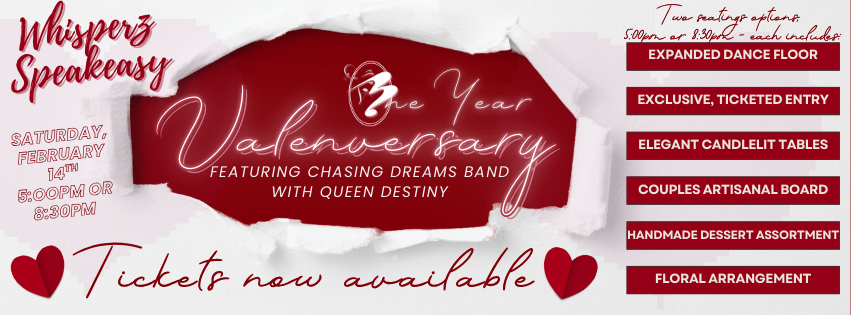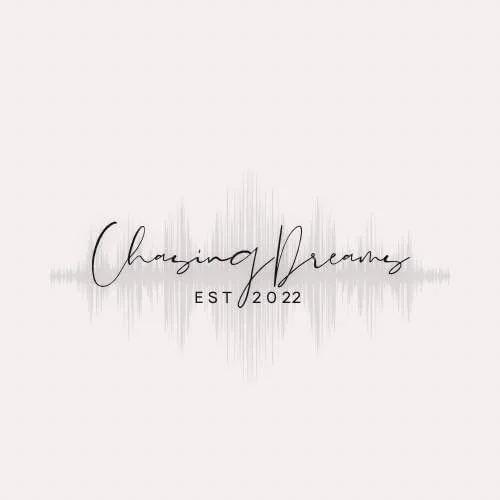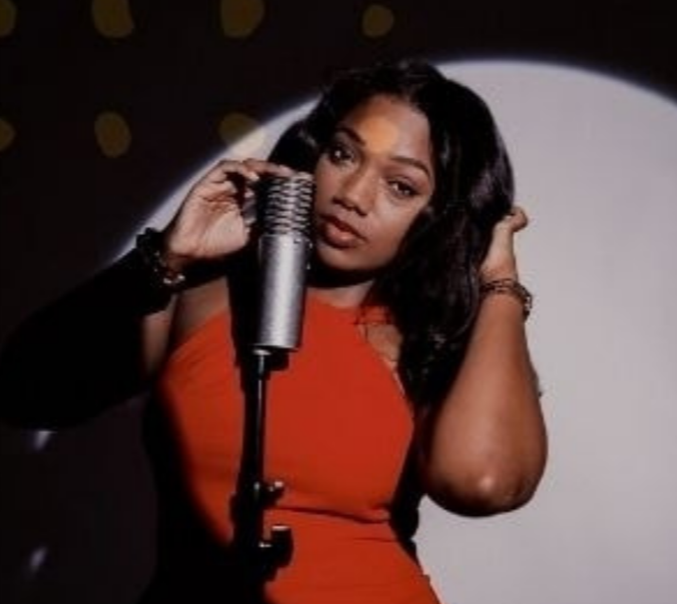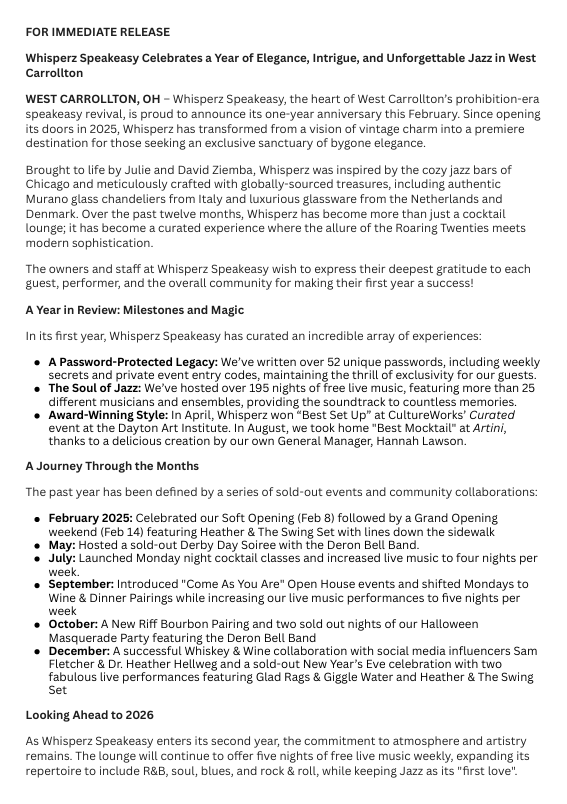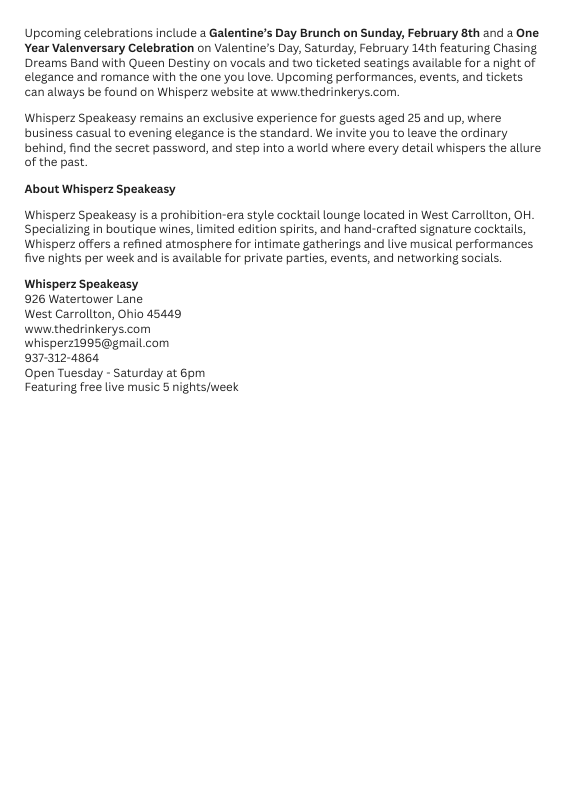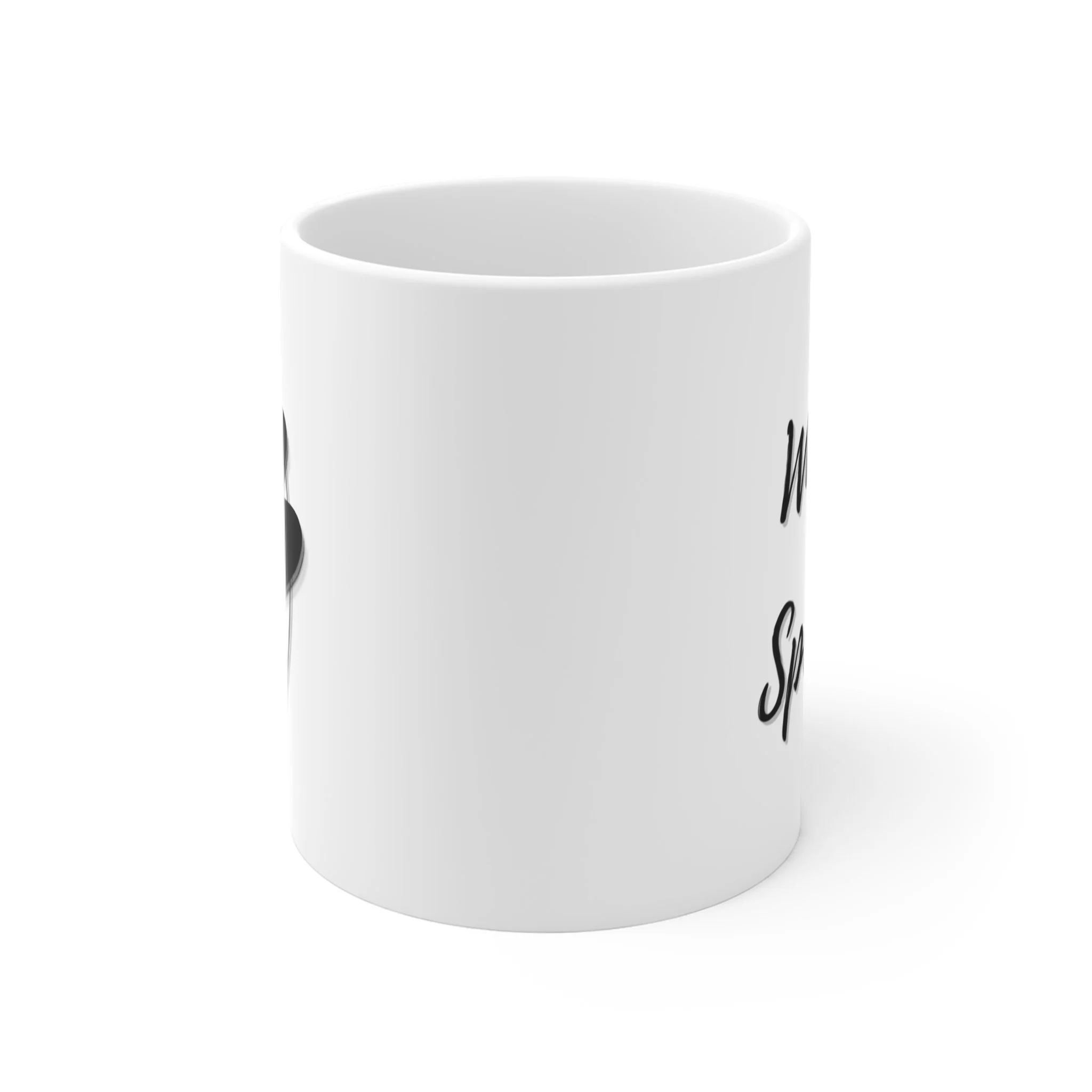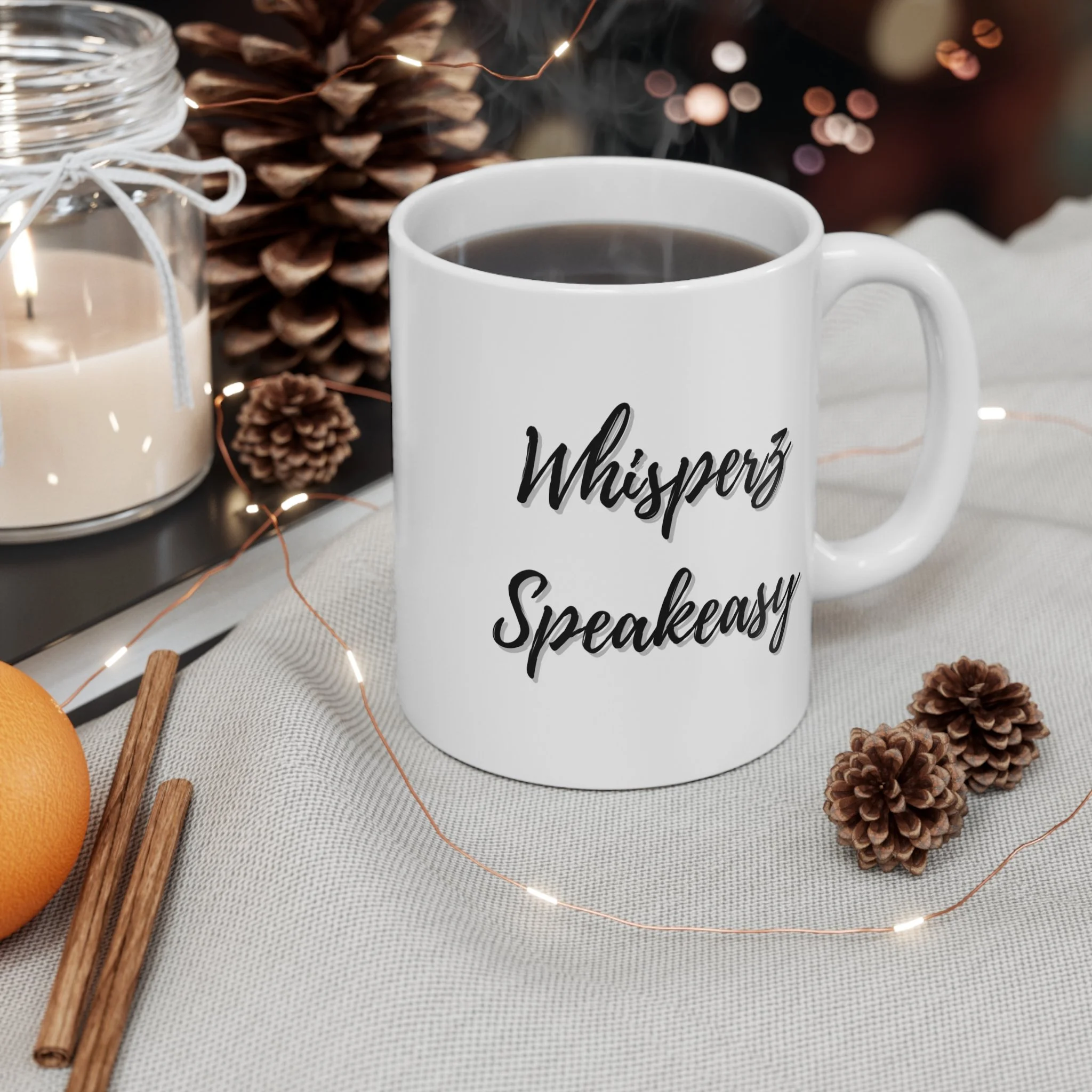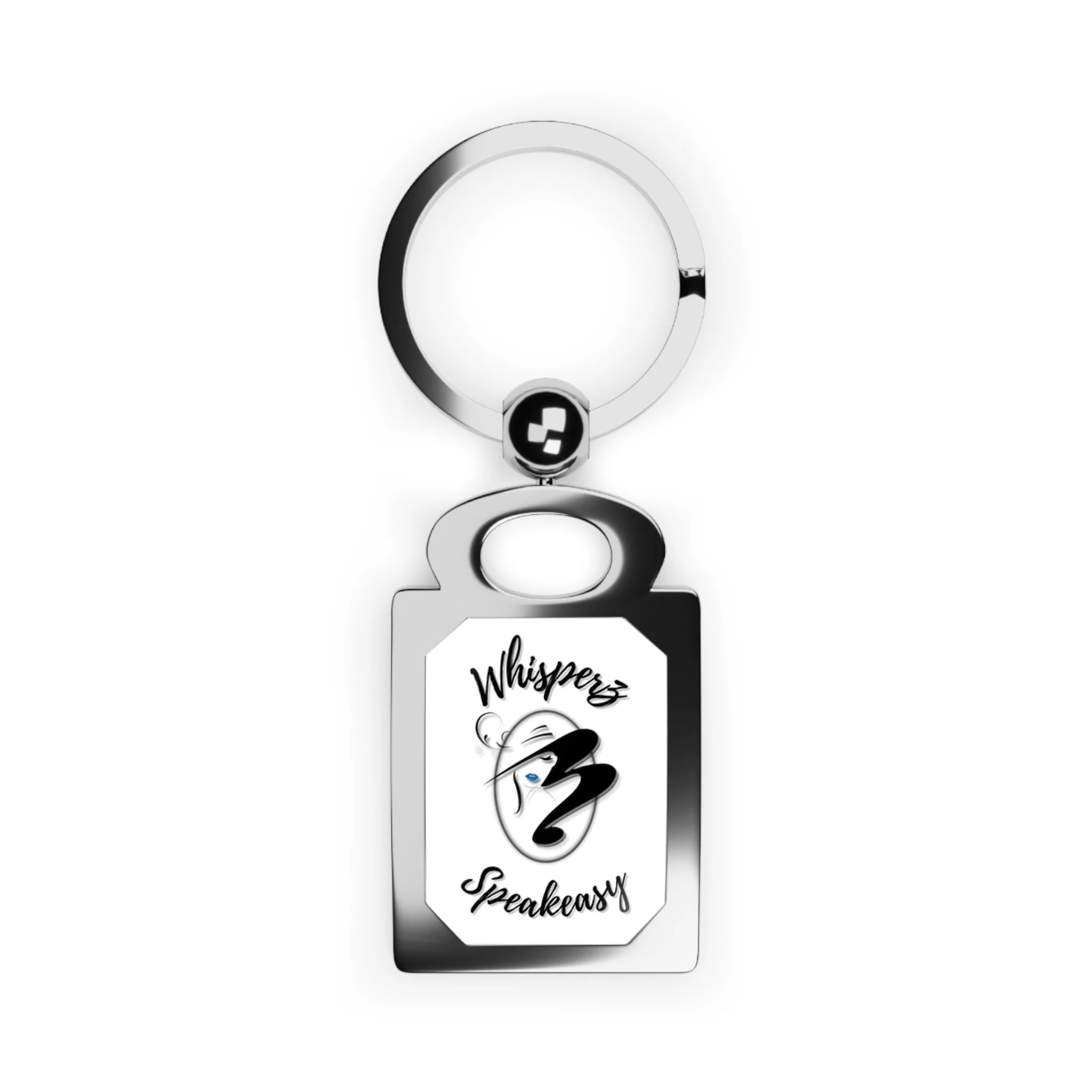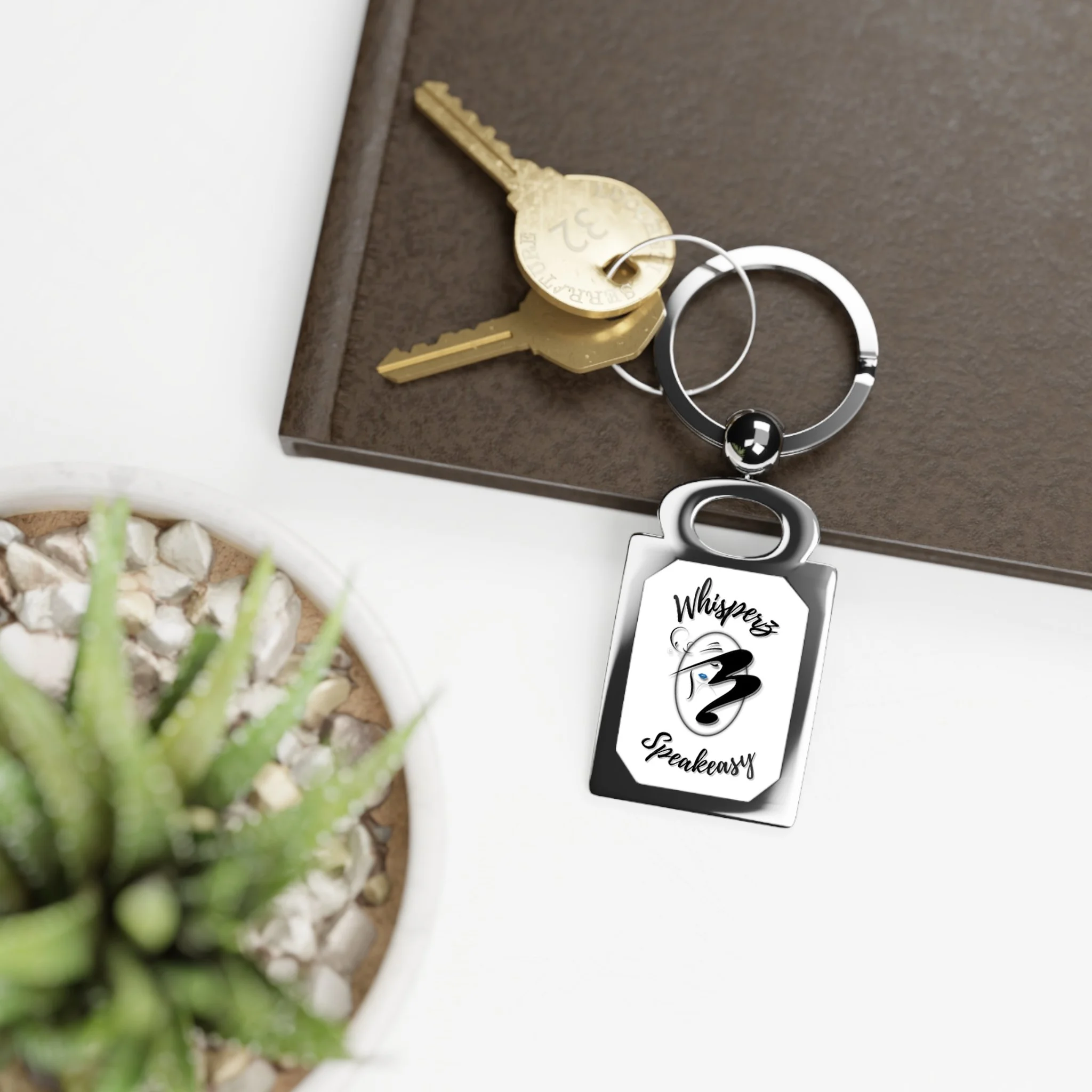
Whisperz Speakeasy
What’s the secret password?

Password of the Week
February 3 - February 7, 2026
We’re looking forward to our ONE YEAR ANNIVERSARY CELEBRATION, which just so happens to be on Valentine’s Day - and in honor of that, our password this week is Valenversary!
Valenversary is a combination of the words "Valentine" and "anniversary," the perfect portmanteau to signify our upcoming celebration on Saturday, February 14th. Valenversary is often used to signify a couple who started dating on Valentine's Day, combining a romantic holiday with a personal milestone and celebrating both the holiday and the relationship in one significant event.
We’ve adopted this saying as our own as we approach our upcoming event with Chasing Dreams Band featuring QueenDestiny. Our One Year Valenversary Celebration is a ticketed event with two exclusive seating options, an expanded dance floor, a romantic candlelit setting, gorgeous floral arrangements, and couples shareable artisanal boards.
Find all the details here! Please join us in celebrating love, friendship, music, dance, and our one year Valenversary at Whisperz Speakeasy!
Check out our One Year Press Release:
What people are saying
“ok, i don't even want to tell you about this place because it is so cool i want to keep it to myself! THE most amazing speakeasy i have ever been to!!! period! it exceeded my expectations. it was opening weekend, we didn't have a reservation, they gave us coupons for drinks next door while we waited our turn. their food and drink prices are very reasonable and delicious. the entertainment was absolutely on point as was the decor and ambiance! great job! i can't wait to go back!”
— Kathi W.
Yelp Review
“Location is deceiving on the outside but do not sleep on this place! The work that was put into this place is unbelievable! Bravo! Drinks were fabulous, selection of wines and bourbons were great. Prices were very reasonable for this unique experience. My husband checked out the bourbon and I had a Mame old fashioned (yum!). Small bites also good. Would go back for the blue cheese crostini alone! Will definitely be back!”
— Erin Peden
Facebook Review
“I really love a good speakeasy and this one definitely hits the mark. Hidden passwords? Check! Dark and elegant? Check! Costumed hostess, servers, and bartenders? Double check! A friend and I just stopped in and were not properly dressed but they let us in anyways! The drinks are to die for and the finger foods are so yummy! I can't wait to get fancy and go back!!”
— Amberli C.
Yelp Review
“Came here for my birthday and everyone loved it! The whole place is stunning and definitely my favorite speakeasy I've been to! They do have a dress code but my friends and I all dressed up in 1920s style clothing. The drinks are delicious, especially their espresso martini! It was busy so it took a while to get our drinks. The live music was great and very on brand. Also it wasn't super loud so we could still converse and hear eachother. All of my friends kept saying how they couldn't wait to go back!”
— Sarah Turecky
Google Review
“We had a great experience here, I highly recommend, it is something different for the Dayton area and it's always great to support a small, local business. The cocktails were great, the service was great, the food was good, the music was great. We will definitely be back!”
— Daytons1blonderealtor
Google Review
Whisperz Speakeasy Events & Merchandise


